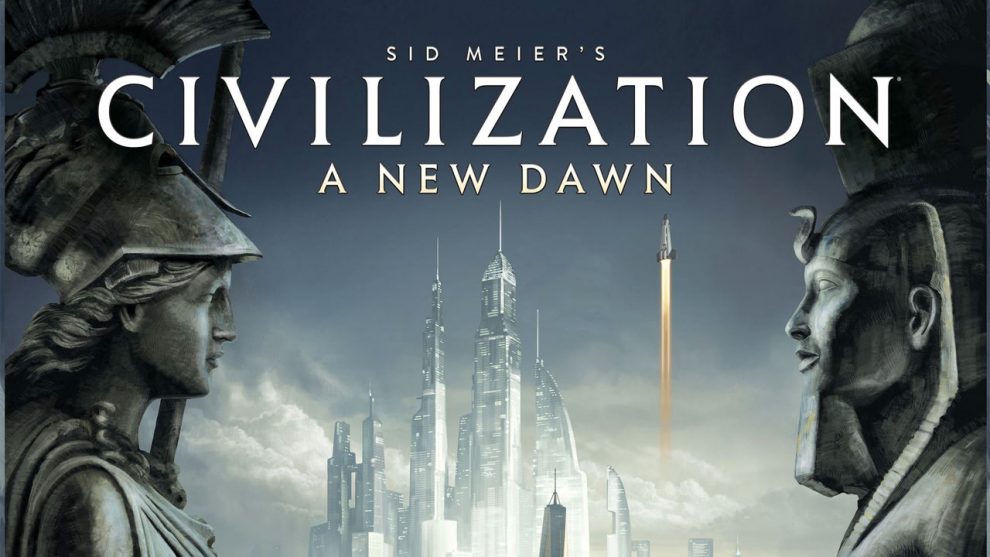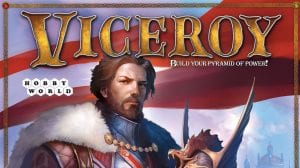A while ago, I wrote an article about imperfect board games that were underrated. The idea behind that article was to examine underrated games and the flaws within their presentation or mechanisms that put them into that position. To say the least, the responses to my piece were interesting. I view myself as a person of integrity, so I bought one of the games on the list. We are going to take a look at it in further detail, and this is such excellent timing because there is an expansion in the works.
Based on the name itself, you probably know the story here. You pick a civilization, start in ancient times, and slowly inch your way towards modern technology as you push other cultures out of the way to demonstrate your superiority. Slowly is probably not the most accurate word since this game will complete in two hours, which is a little shocking for a genre known for double or triple that hour count. It does this by taking a far more abstract approach to the civilization genre than the usual nitty-gritty details one would expect.
Managing Your Rows
You can see this with the use of the focus bar as your gateway to selecting your action. There are five slots of the focus bar, numbered 1 to 5, with an action card occupying a numbered slot. Your turn is going to be very simple; Pick a card, do what the card says, and move that card back to the 1 slot while shifting the other cards upwards. The twist here is the higher the number, the better output you will get.

Let’s say that I want to send my caravan 3 spaces towards a City-State on the map because I want some trade goods. The slot represents what terrain type I can travel on, so to cross those forests, I need to execute my Caravan card on the 3rd slot or higher.
That’s not the exciting story here since that is such an obvious answer. The internal issue you are facing is using the cards in front of your Caravan card to move it to the 5th slot. You need to figure out how to use those actions efficiently while keeping your civilization on course to victory. That’s where this game gets fun, and it does all of this without forcing a complicated system slapping everyone in the face.
Based on what you know so far, you are probably curious about how this game tries to handle concepts such as technology and military, which are keystones to the civilization genre.
Instead of a tech tree, you have a technology dial. You accumulate research points that will turn the dial, and once you reach a certain threshold, you will replace one of your focus cards with an improved version of it. These cards are upgraded versions of the previous action cards, and this is where we start seeing the flaws in the game’s image.
This is a perfectly fine mechanism for you to engage in. The idea of swapping actions to improve existing ones makes sense with the Focus bar system. The issue is it doesn’t go far enough with this idea. Everyone has the same set of cards to play with, meaning the variance between the players isn’t noticeable. It betrays one of the pillars of a civilization game: Specialization.
Cutting The Necessary
Civilization games aren’t just different cultures going at it. It’s about the numerous interpretations of a “great” civilization competing in the same petri dish that makes them so engaging. What happens if you put an expansion empire, an economic powerhouse, and a technology-heavy culture in the same room? What events would occur between the three civilizations that could have an implication lasting thousands of years?
One can argue the different civilization powers that everyone gets is what drives the specialization, but these powers feel like a single tree in a forest. You might notice it, but it isn’t the big picture. This game has a great tech system, yet it felt it could’ve been so much more.

Of course, civilizations with their borders and ideologies might not appreciate each other’s company, and that’s where the military comes in. During the game, you will be placing your control markers on the board through various actions. Much like everything else, this is an abstract way of saying you have influenced a piece of land, and it is from these locations where you can launch military strikes.
You will pick an enemy-controlled space to attack within range of your control markers (such as a city or enemy control marker), and you will calculate their bonuses as well as your bonuses. These bonuses will include aspects such as the terrain type the target is on or how many friendly pieces are surrounding that space. Both you and your opponent will then roll a single six-sided die, add the bonuses, and whoever is the highest wins.
As you can probably guess, reactions to this system were mixed. I am fine with its current state, and I don’t love it nor hate it. This constant hate towards dice comes across as weird to me since the game provides plenty of ways to circumvent the influence of the plastic cube.
The game isn’t punishing you by using dice; it’s telling you to have superior technology and an ample amount of supplies to spend to make sure the dice’s outcome doesn’t influence your plans. If you decide to attack your opponent on equal grounds, you are reliant on the dice roll because you are trying to shortcut your way to victory instead of building towards it.
Even though I am content with the dice rolling, there is one major criticism I have about the combat system. As mentioned before, you can strike from control tokens. Meaning if you manage to play your actions correctly, you can position yourself on the map where you are a threat to everyone. There is no such thing as military tactics in this game. Simply put, you need to deploy your control point in the range of another player, and away you go. I’m not a fan of it.
A Wonderful Strike
Every military campaign does need a prize, and in this case, it’s Wonders. You can’t have a civilization game without Wonders, and this one isn’t going to ignore that tradition. Like real life, only one wonder per city is allowed, and it’s a race to get those Wonders. Each Wonder grants you a special perk or ability that you can abuse throughout the rest of the game unless the city that has it is taken over by a rival.
Building a Wonder costs a certain amount of production points, which is determined by your Industry card’s slot, trading goods, and resources. There are several types of resources, and if they match the Wonder you are building, you can spend them to build your Wonder. The map determines the location of these resources, and you have Natural Wonders that will continuously generate these resources for you. Don’t be surprised that these Natural Wonders will be a target of military conquest, especially if the players are going for a Wonder focused strategy.
Not every war won was with swords or nuclear missiles. Sometimes words can work, and this is where the Caravans come in. By using your Economy card, you can send your Caravans to other player’s cities or City-States to acquire diplomacy cards or trading goods. Diplomacy cards give you boosts to particular actions such as combat bonuses or reducing the cost of Wonders. It’s an excellent system that displays the benefits of interacting with other players that promotes collaboration instead of destruction. Trading goods is a currency you can use to boost the effects of your actions, such as making caravans move more spaces, reducing the cost of a Wonder, or increasing your Combat result. It’s another layer to be concerned about that is welcomed in this system.
As you can see, there are numerous avenues for you to take to reach the end goal, so what is it? After 1300 words, we will finally talk about how this game ends. At the very start of the game, 3 out of the 5 goal cards will be dealt out. Each goal card has two halves representing the two goals. Your job is to pick one of those goals and fill it. Once you have completed a goal on all three cards, you immediately win.

I have mixed feelings about this system. On one hand, I love this idea of the goals influencing the general atmosphere of the game. Even with the same map and same civilizations, it’s possible to have a different experience based on the goal cards. Some games might be more about military expansion, while another game would allow a balanced approach to your empire. It is also easy to understand for new players since this instinctually tells you it’s a race to these objectives. Don’t expect weird Euro scoring nonsense here.
A Flawed But Decent Idea
On the other hand, I can’t ignore the ramifications of this design. It removes your agency to chart your path and create your story, a staple in the civilization theme. One of the pure joys of these types of games is the bizarre tales that you and your friends have crafted. By telling your friends that “you can only win by these conditions” from a random format does rob them from that experience. Another issue with this setup is games can end without much of a climax. Sometimes you could end up in a situation where tensions between two civilizations are high, and all it took was one attack to end the entire game.
That’s the source of this game’s problems. Its presentation and mechanisms are in this never-ending conflict that refuses to quiet down throughout the entire experience.
You have to realize that this isn’t just a civilization game; it is the Civilization game. It is a licensed product based on a strategy computer game franchise that has been around for decades. It is deemed culturally important to both gamers and designers. Civilization: A New Dawn wants to dress up like the part, yet it doesn’t want to burden itself with the responsibilities of doing so. Despite this, I refuse it to call it a “bad” game.
If anything, most of my issues with the game are the best type of problems a game can have. My concerns are along the lines of execution instead of the concept. Yes, it sucks that there is a mundane tech system, but you still need to maneuver that Focus bar like a Rally driver carving through a mountain trail. Launching your attacks from a control point is silly, but you have to figure out a way to cement your position to do so. Ending the game is anti-climatic, but you still need to chart a plan to reach those goals. These flaws don’t intrude on your agency in the game. Proper decisions are still highly rewarded, and that’s something I cannot say about most imperfect games.
While this review might sound judgmental, the designer of the upcoming Terra Incognita expansion is addressing some of these concerns directly, so I am not alone on this hill. I firmly believe when the expansion is released, it will turn this good game into an excellent one. However, I am reviewing the game at its current state, so what are my thoughts? If you have a preference for civilization or strategy games, it is worth playing at least once even with the mentioned imperfections. This will likely not be your favorite strategy game, however, I am quite confident that you will appreciate what the game is trying to do and will enjoy your time with it.
Buy Civilization: A New Dawn on Amazon US











I have to agree with your assessment that this game doesn’t quite make it. It seemed to hold the promise of butting heads, but right when it looked ready to get interesting – empires expanded, tech humming – someone ruined it all by winning the game. Fightus interruptus, I guess.
With any luck the expansion will include options to make a nuisance of yourself much earlier in the game – roaming armies perhaps. I’m going to shelve this for now and hope that the expansion loads it with more tension and uncertainty.
Cheers